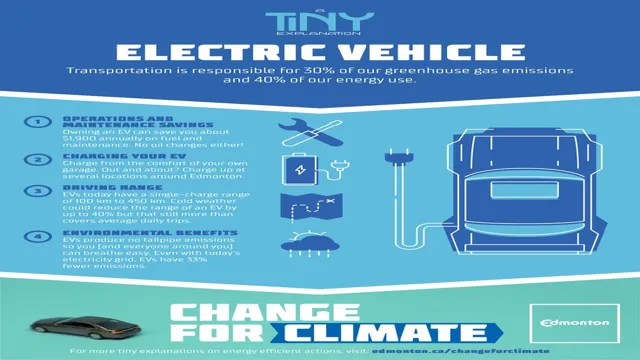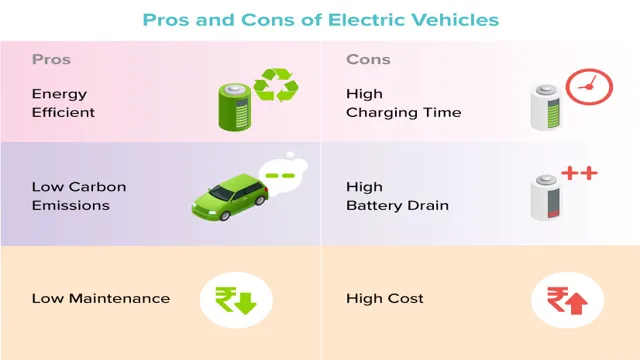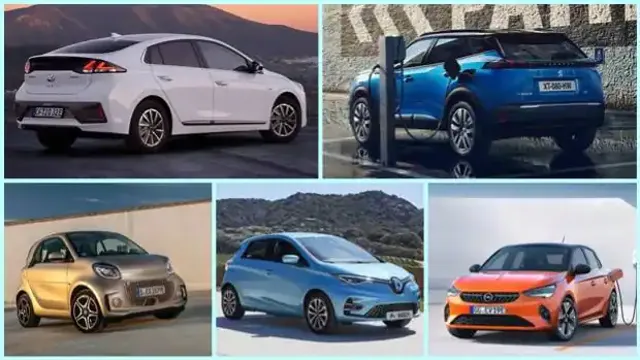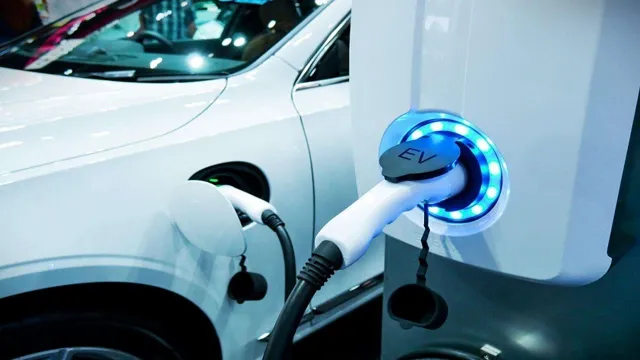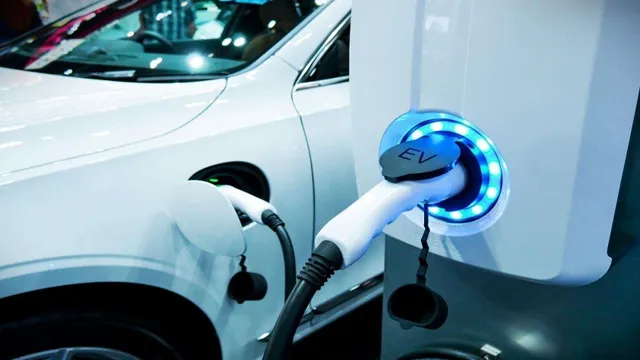Fueling Your Ride: Why Gas and Electric Cars Have Their Own Benefits
Have you ever wondered which is better, gas or electric cars? With the world becoming more and more concerned about the environment, and the depletion of our natural resources, the conversation around electric cars is becoming more popular. But what are the benefits of choosing an electric car over a gas-powered one? Let’s explore the advantages of electric cars and see how they stack up against their gas counterparts. By the end of this article, you’ll have a better understanding of the differences between electric and gas cars and be able to make an informed decision when it comes to making a purchase.
Environmental Impact
When it comes to choosing between gas and electric cars, one of the most important factors to consider is their impact on the environment. While electric cars are often touted as the more environmentally friendly option, the benefits of gas vehicles should not be overlooked. Gas cars have made significant strides in reducing their emissions, with modern models emitting far less pollution than older cars.
Additionally, gas cars have a much longer range than electric cars, making them a better choice for long-distance trips. That being said, electric cars still have several environmental benefits, such as emitting no tailpipe emissions and reducing our dependence on fossil fuels. Ultimately, the decision of whether to choose a gas or electric car should be based on your individual needs and preferences.
Gas Cars Produce More Emissions
Gasoline cars are notorious for producing harmful emissions that have a significant and negative impact on our environment. The exhaust from these cars contains carbon monoxide, nitrogen oxides, and other pollutants that contribute to global warming and air pollution. In fact, transportation is one of the largest sources of greenhouse gas emissions in the world.
While electric cars are gaining popularity as an alternative, many people still prefer gas cars due to factors like affordability and convenience. However, it’s essential to remember that with every mile we drive in a gasoline car, we’re releasing more emissions that harm our planet. It’s important for us to recognize the impact of our transportation choices and consider making changes to reduce our carbon footprint.
We can choose to use public transportation, carpool, walk or bike, or invest in a cleaner vehicle. By taking action, we can be a part of the solution to reduce harmful emissions and protect our planet for future generations.
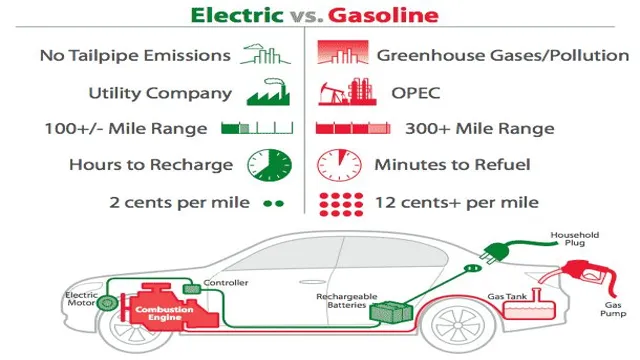
Electric Cars Are More Energy Efficient
Electric cars are more energy-efficient than their gasoline counterparts, making them the preferred choice for environmentally-conscious drivers. The environmental impact of traditional cars is considerable, from the extraction of fossil fuels to the emissions they produce. On the other hand, electric cars are powered by electricity, which can come from renewable sources like wind or solar power.
While the production of electric cars may require more energy and resources due to the advanced technology and manufacturing processes involved, the reduction in greenhouse gas emissions is significant. In addition, electric cars require less maintenance than traditional cars, which means that not only are they better for the environment, but they are also more cost-effective in the long run. Given the negative effects of climate change, it is essential that we make a conscious effort to reduce our carbon footprint, and driving an electric car is an easy way to do just that.
Cost
One of the biggest benefits of gas-powered cars is cost. Gasoline is generally cheaper than electricity, which means owning a gas-powered car can be more affordable in the long run. Gas stations are more widely available than charging stations, so refueling is more convenient.
However, electric cars may still be cost-effective due to their lower maintenance costs and potential tax incentives. Electric cars may also have lower fuel costs in areas with high electricity rates and can potentially save money on car insurance. Ultimately, the cost comparison between gas and electric cars will depend on individual variables such as driving habits and location.
Gas Cars Have Lower Upfront Costs
When it comes to purchasing a car, one of the most significant factors to consider is the cost. Gas cars do have a lower upfront cost than electric cars which may make them a more attractive option for some buyers. However, it’s important to keep in mind that the cost of ownership over time can be significantly higher for gas cars due to fuel and maintenance costs.
For those who use their car frequently, the daily expenses of gas can add up quickly, especially with rising gas prices. In contrast, electric cars may have a higher initial investment, but the savings on fuel and maintenance costs can eventually balance out the cost over time, resulting in more savings in the end. Ultimately, it is the buyer’s decision to weigh the upfront cost versus the long-term cost benefit in choosing between a gas or electric vehicle.
Electric Cars Have Lower Operating Costs
One of the biggest advantages of electric cars over gas-powered vehicles is their lower operating costs. While electric cars may have a higher upfront cost, they save a significant amount of money in the long run due to factors such as lower electricity costs, fewer mechanical components, and less maintenance. According to studies, the average cost of operating an electric vehicle in the United States is around $485 per year, while a gas-powered car costs around $1,117 per year to operate.
This means that, on average, electric cars can save their owners around $600 per year in operating costs alone. Additionally, electric cars may qualify for tax credits and other incentives that can further reduce their overall cost. In the end, although electric cars may seem like a significant investment at first, their lower operating costs make them a smarter choice for individuals looking for a more cost-effective and environmentally sustainable mode of transportation.
Incentives For Electric Cars
Cost of Incentives for Electric Cars When considering purchasing an electric car, the cost can sometimes be a deterrent. However, there are numerous incentives available that can offset these initial expenses. One such incentive is the federal tax credit, which offers up to $7,500 for certain electric cars that meet specific requirements.
State incentives also exist, ranging from tax credits to rebates, which can vary depending on where you live. Additionally, some utilities offer discounted rates or rebates for charging your electric vehicle during off-peak hours, further reducing the cost of ownership. While the cost of an electric car may seem high, it’s worth considering the savings and incentives available over time.
By taking advantage of these incentives, drivers can not only reduce their carbon footprint but also save money in the long run.
Performance
When it comes to the debate between gas versus electric cars, the benefits of electric cars in terms of performance can’t be ignored. One of the biggest advantages of driving an electric car is the instant torque it provides, meaning that the car can go from 0 to 60 mph in just a few seconds. Gas cars, on the other hand, often have to rev their engines to build up torque before they can take off.
Electric cars are also incredibly smooth and quiet to drive, providing a more luxurious driving experience. Additionally, electric cars don’t need to change gears, so there’s no lag time between acceleration and shifting. Overall, electric cars are more efficient and faster, making them a better choice for those who want a more exciting ride.
On top of that, electric vehicles have a lower center of gravity, which provides a better handling experience. So, if you’re looking for a car that’s quick, smooth, and fun to drive, an electric car might just be the perfect choice for you!
Gas Cars Have Stronger Acceleration
Gas cars have a reputation for having stronger acceleration than electric cars, but what does that really mean? In terms of performance, gas engines have the ability to deliver bursts of power quickly while electric engines have a more consistent and linear power delivery. This means that gas cars have an advantage when it comes to quick acceleration from a stop or during passing maneuvers on the highway. However, at higher speeds, electric cars can still hold their own thanks to their ability to maintain a consistent power output.
But it’s important to remember that acceleration isn’t the only measure of performance. Electric cars often have better handling due to their lower center of gravity and instant torque delivery, making them not only fast but agile. So while gas cars may have an advantage in quick bursts of acceleration, electric cars have their own strengths to bring to the table when it comes to performance.
Electric Cars Have Near-Silent Engines
One of the unique features of electric cars is that they have near-silent engines. This is because electric vehicles use batteries and electric motors to generate power and propel the car, rather than the traditional internal combustion engine. The result is a quiet and smooth ride, making driving a more enjoyable experience.
But just because electric cars are quiet doesn’t mean they lack performance. In fact, many electric cars have impressive acceleration and can reach high speeds quickly, thanks to the instant torque provided by electric motors. So, don’t be fooled by the lack of engine noise – these cars can still pack a punch.
It’s like a ninja – powerful and silent at the same time. Plus, the reduced noise pollution is a significant benefit for both drivers and pedestrians alike.
Infrastructure
When it comes to choosing between gas and electric cars, there are several benefits to consider. Gas-powered vehicles have been the norm for years, but electric cars have gained popularity in recent times due to their eco-friendliness. However, gas cars still have the upper hand when it comes to infrastructure, as gas stations are widely available compared to electric charging stations.
This means that gas cars are better suited for long trips or places with limited charging options. Additionally, gas cars can be refueled in minutes, while electric cars can take hours to recharge. However, electric cars offer considerable savings on operating costs, given that the cost per mile for electricity is significantly lower than gasoline.
Thus, if you’re looking for a car that offers ease of access and quick refueling, gas cars are a better option, while electric cars are best suited for local commuting and reducing your carbon footprint.
Gas Stations Are More Common
Gas stations have become an essential part of our daily lives as they are more readily available than ever before. Whether you are running errands or heading out on a road trip, you can easily spot a gas station along the way. This increase in infrastructure has made it convenient for drivers to fuel up whenever they need to without worrying too much about running out of gas.
Gas stations not only offer petrol but also a wide range of other necessities such as snacks, drinks, and toiletries. This means that you can take care of multiple needs all in one place, saving you time and hassle. With so many gas stations available, you may wonder what sets them apart from each other.
Some offer discounts and promotions or provide services like car wash and oil changes. Whatever your preference may be, the abundance of gas stations ensures that you will always have access to fuel and other amenities, no matter where you are.
Electric Charging Stations Are Growing
Electric charging stations are becoming increasingly common as more people make the switch to electric vehicles. As the demand for EVs grows, the need for infrastructure to support them also increases. Fortunately, many cities and businesses are stepping up to the plate by installing more charging stations throughout their communities.
These charging stations can be found in a variety of locations, from parking garages to shopping malls to public parks. Not only do they make it easier for EV owners to charge their vehicles, but they also help reduce our reliance on fossil fuels and promote sustainability. The growth of electric charging stations is an exciting development in the world of clean energy, and it’s something we can all be a part of by making the switch to an electric or hybrid vehicle.
Conclusion
In conclusion, the battle between gas and electric cars may seem never-ending. But one thing’s for sure, the benefits of electric cars simply cannot be ignored. With their environmental friendliness, cheaper long-term costs, and modern and sleek designs, it’s no wonder they’re taking the automotive world by storm.
So, while gas cars may have served us well – it’s time to electrify our ride and experience all the benefits that come with it. Trust us, your wallet and Mother Nature will thank you in the long run!”
FAQs
What are some benefits of gas-powered cars over electric cars?
Gas-powered cars typically have a longer driving range and can refuel quickly compared to electric cars.
What are some benefits of electric cars over gas-powered cars?
Electric cars produce zero emissions and have lower operating costs since electricity is cheaper than gasoline.
Which type of car is better for the environment?
Electric cars are better for the environment since they produce zero emissions, whereas gas-powered cars contribute to air pollution.
What is the cost difference between gas-powered and electric cars?
Electric cars typically have a higher upfront cost, but they have lower operating costs in the long run due to the cost of electricity compared to gasoline.
Are there any government incentives for purchasing electric cars?
Yes, many countries offer tax credits or rebates for purchasing electric cars as a way to promote sustainable transportation.
